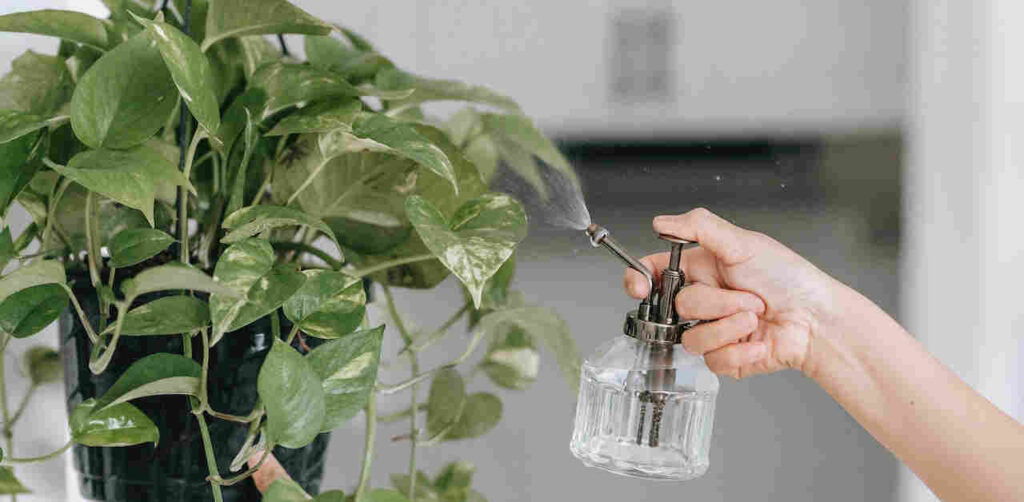Published by: Almanac
Don’t reach for harsh chemicals. They will do more harm than good by polluting the watershed, killing good and bad bugs alike, and eventually the insects you are trying to kill may grow resistant to those chemicals requiring you to use even stronger ones! They can also harm birds, animals, you, and your children!
Try a more natural approach by making one of these homemade insecticidal sprays. Bear in mind that although they are less toxic, they are not harmless. Keep them away from kids and pets. Test them on a few leaves before you go all in to make sure they won’t injure your plants. Be sure never to spray them on your plants during the sunny, hot part of the day, or they will cause foliar damage. Spray in the evening, when bees and other pollinators are not active.
Dish Soap Spray: Dissolve 1 tablespoon of a mild liquid soap such as pure dish soap (no bleach, degreaser, or detergents added) or castile soap in 1 quart of water. Dr. Bronner’s soap may be expensive, but it uses no animal fats, which makes it a good choice for vegans. Insecticidal soaps are good for killing soft-bodied insects. Be sure to cover the whole plant—both sides of the leaves and on the stems. Soap sprays only work when wet, so they will need to be reapplied every 4-7 days or until you notice that populations have decreased. After a few applications, if rain hasn’t done this for you, spray the plants with plain water to rinse off any soapy residue.
Oil Spray: Mix 1 cup of vegetable oil with 1 tablespoon of mild liquid soap. Add 2-8 teaspoons of this mixture to 1 quart of water and spray your plants as above. The oil in this spray smothers the insects so it is effective on aphids, thrips, mites, and scale.
Tomato Leaves Insecticide: The leaves of tomatoes contain solanine and tomatine and can be used as an insecticide. Soak 2 cups of fresh leaves in 1 quart of water overnight. Strain and spray. It kills aphids and many types of chewing insects, but also attracts benefits. Please don’t use it on other nightshades like eggplants, peppers, or potatoes because it could spread disease from plant to plant.
Garlic Repellent Spray: Despite all you’ve read, garlic acts as more of a repellent than a killer. Puree 2 bulbs of garlic with 1 cup of water and let sit overnight. Strain the liquid into a quart jar, add 1/2 cup vegetable oil, 1 teaspoon liquid soap, and fill the jar the rest of the way with water. Put one cup in a 1-quart sprayer, fill it with water, and apply it to your affected plants. It is good for repelling aphids, cabbage worms, leafhoppers, squash bugs, and whiteflies.
Hot Pepper Repellent Spray: Hot pepper is also a good repellent and works on rabbits, deer, and many insects. Mix 1 tablespoon of dried chile powder, 1 quart of water, and 1 teaspoon of mild soap. Spray full strength on the plants under attack.
If you have many hot peppers growing in your garden, you can make a fresh concoction from 1/2 cup of chopped peppers pureed in 1 cup of water. Add the puree to 1 quart of water and bring to a boil. Let sit until cool and then strain. Add 1 teaspoon of mild soap and spray full strength on plants. You might want to wear gloves when working with this spray and be sure not to get it into your eyes!
